When do children go to the dentist?
It’s important for your child to grow up knowing that it’s important to keep a healthy smile, and this includes bringing them to the dentist.
Taking care of your child’s oral health is ever more important now, as Health Direct has noted that children’s tooth decay in Australia is rising with more than half of six year old’s having some decay.
Did you know that you should be bringing your child to the dentist from the age of one, or within six months of their first tooth?
The earlier your child starts receiving regular dental checkups, the higher chances they have for keeping a healthy mouth during their life.
However, unfortunately, this is not the case as it’s recorded that only 17% of children had seen a dentist by the age of two and that more than 26,000 Australians under 15 are admitted to hospital to treat tooth decay per year. Stats can be found here.
Why should I bring my child to the dentist?
Taking your child to the dentist early on, allows them to get familiar and allows them to feel more comfortable about the dentist.
Your child will also learn why maintaining good oral hygiene is important as they grow up with regular dental visits.
It’s never too early to learn good oral hygiene.
The first dental visit:
It’s important that you remain calm, because if you have fears of the dentist, they can easily be passed onto your child, as it’s common for them to pick up their parent’s anxieties.
You must never use the dentist as a punishment or mention any negatives, as you want your child to enjoy visiting the dentist, not hate it.
To prepare for the visit, talk to your child about why the dentist is important and why they need to take care of their teeth. There are plenty of children’s books teaching children about dental health.
Organising your appointment during the morning is important as children are well rested and arriving early with plenty of time is advised.
Now, the first appointment allows the dentist to examine your child’s mouth and detect potential issues early on. The dentist may perform a full examination of the teeth, gums, bite and jaw to examine your child’s dental health. An X-ray may also be taken in some cases to check the adult teeth. However, this may depend on how early you bring your child, as it may be left for the next appointment.
Having the dentist perform assessments allows higher chances for issues to be spotted early, so that both you and the dentist can prepare future necessary treatments for your child.
On the first visit, the dentist will also ask about your child’s medical history, so that they can understand the overall health and development of your child.
The dentist will provide tips and help you understand how you should properly care for your child’s oral health.
The dentist may discuss the following:
- Teething (emergence of teeth through gums)
- Nutritional and feeding advice
- Potential bite and teeth issues
- Tooth decay (risks and prevention)
- Brushing and flossing techniques
- Bad habits (thumb sucking and dummy habits)
After the first dental visit, it is important to bring your child along every six months, or sooner if required or instructed by the dentist.
Cleaning baby’s teeth:
As soon as your child’s first teeth appear at around six to nine months, you should begin cleaning them.
These teeth should be cleaned by brushing with a small very soft-bristled toothbrush and water or wiping with a cloth up until about 18 months when you can change to using a low-fluoride toothpaste to clean your child’s teeth.
It’s also important to wipe your babies’ gums using a soft damp cloth.
Your child may want to try brushing themselves, so give them a go, but make sure to follow up with a more thorough clean. This is important, as it encourages their interest in dental care and remember, make it fun for them.
At around the age of six to seven, your child should be ready to begin brushing their own teeth using the excellent techniques they have learnt from you and the regular dental checkups.
Importance of maintaining healthy baby teeth:
- Achieving healthy adult teeth: if your child does not have healthy baby teeth and loses teeth to decay, there are increased chances of crowding problems when their adult teeth come through. This is due to the fact that baby teeth help save space for their adult teeth, which is why it’s important to maintain them until they naturally fall out.
- Helps children chew properly: baby teeth allow your child to chew food properly and receive good nutrition.
- Speech development: teeth help form words as they control the flow of air out of the mouth, which means your child uses their baby teeth to learn new sounds. This works by placing the tongue in different spots against the teeth to create different sounds.
- Healthy smile: your child deserves a healthy smile as it will help them maintain one later on, plus they will feel good about it.
Our friendly team at Starbright Dental on the Gold Coast enjoy making sure children receive the best dental care as they grow up to have a healthy smile. Our primary interests are to ensure our patients feel relaxed, receive excellent dental care and that dental problems are caught early on.
If you have any questions regarding children’s dentistry or another dental service, or would like to book an appointment, please do not hesitate to contact us here.

